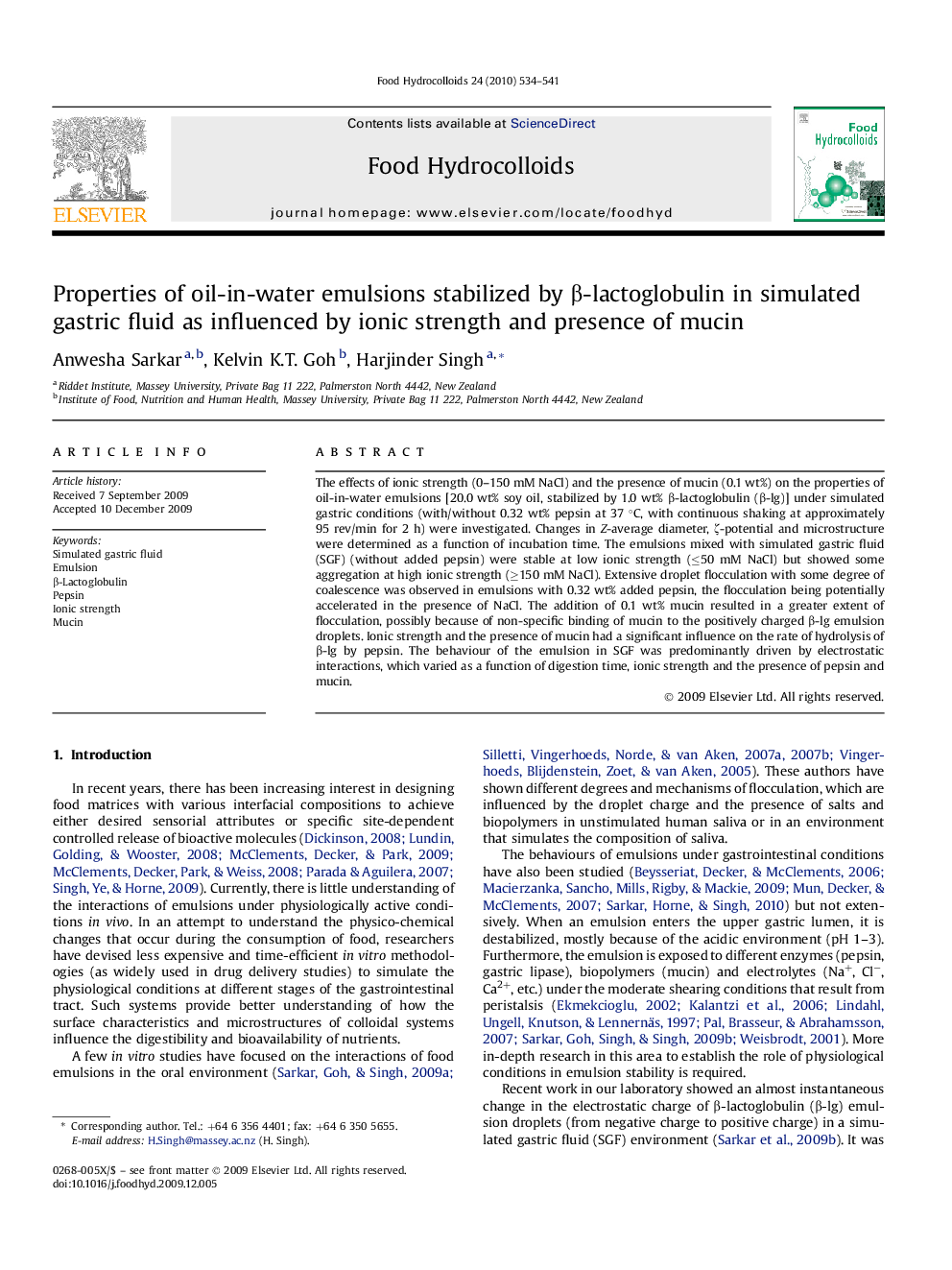| Article ID | Journal | Published Year | Pages | File Type |
|---|---|---|---|---|
| 605759 | Food Hydrocolloids | 2010 | 8 Pages |
The effects of ionic strength (0–150 mM NaCl) and the presence of mucin (0.1 wt%) on the properties of oil-in-water emulsions [20.0 wt% soy oil, stabilized by 1.0 wt% β-lactoglobulin (β-lg)] under simulated gastric conditions (with/without 0.32 wt% pepsin at 37 °C, with continuous shaking at approximately 95 rev/min for 2 h) were investigated. Changes in Z-average diameter, ζ-potential and microstructure were determined as a function of incubation time. The emulsions mixed with simulated gastric fluid (SGF) (without added pepsin) were stable at low ionic strength (≤50 mM NaCl) but showed some aggregation at high ionic strength (≥150 mM NaCl). Extensive droplet flocculation with some degree of coalescence was observed in emulsions with 0.32 wt% added pepsin, the flocculation being potentially accelerated in the presence of NaCl. The addition of 0.1 wt% mucin resulted in a greater extent of flocculation, possibly because of non-specific binding of mucin to the positively charged β-lg emulsion droplets. Ionic strength and the presence of mucin had a significant influence on the rate of hydrolysis of β-lg by pepsin. The behaviour of the emulsion in SGF was predominantly driven by electrostatic interactions, which varied as a function of digestion time, ionic strength and the presence of pepsin and mucin.
Graphical abstractFigure optionsDownload full-size imageDownload as PowerPoint slide
